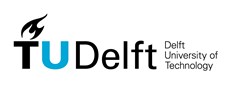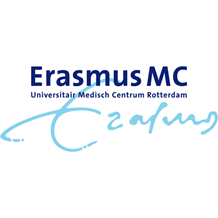A phantom simulating the fetal electrocardiogram
Fetal heart rate (FHR) monitoring is an important tool for assessing fetal wellbeing. The baseline frequency, heart rate variability, accelerations and decelerations of the FHR pattern, and its relation to uterine activity, indicate if the oxygen and nutrient supply to the fetus is adequate and if the fetus is in good condition [1].
Different methods and devices are used for FHR monitoring. Currently, at the department of Obstetrics and Gynecology of the Erasmus MC – Sophia the FHR is monitored using a device based on ultrasound technology. The ultrasound transducer sends sound waves to the fetal heart and receives reflected sound waves back from the fetal heart. The frequency shifts in the reflected sound waves are used to determine the FHR. Electrophysiology can also be used to determine the FHR. Electrodes placed on the mother’s belly are used to measure the electrical activity of the fetal heart. The measured fetal electrocardiogram is then used to determine the FHR.
To evaluate the performance of different methods and devices for FHR monitoring, a uniform comparison between the devices should be made possible. In this way the conditions under which the FHR monitoring takes place are equal at all times. This can be achieved by using a fetal electrocardiogram-simulating phantom, in which variables such as the FHR, position of the fetus, BMI of the mother, gestational age and the conductivity of the maternal abdomen can be controlled.
The aim of the project is to develop a phantom that simulates the electrical activity of the fetal heart within the maternal abdomen.
When interested, please feel free to contact the project coordinator:
Chantal Eenkhoorn
Scientific researcher Obstetrics and Fetal Medicine
c.eenkhoorn@erasmusmc.nl
This project is part of the project “Smart Fetal Monitoring”, which falls within the program of the Medical Delta Institute of Fetal and Neonatal Care. A collaboration between Erasmus MC, TU Delft, LUMC, and UL in the context of Medical Delta 2.0.
[1] Nijhuis, J. G., Essed, G. G. M., van Geijn, H. P., & Visser, G. H. A. (2016). Foetale bewaking. Reed Business.


